“Things are not always what they seem.”
~ Phaedrus
Is Ghee a Healthy Fat for People with Autoimmune Disease?
I used to think the answer was a simple, “Yes.” After all, it’s promoted as being allergen-free and allowed on a number of healing protocols including The Whole 30, The Wahls Protocol and The GAPS Diet. When it’s made from organic and grass-fed butter, it’s nutrient-dense, containing many fat-soluble vitamins and beneficial fatty acids. In fact, when I did the Paleo Autoimmune Protocol (AIP) back in 2012, I never removed ghee from my diet, even though it is supposed to be excluded on the AIP. I’m a questioner, and I don’t follow rules that don’t make sense to me. I figured it’s allergen-free and nutrient-dense, so why skip it? However, over the years, more and more people reached out to me to share their negative experiences with ghee. Many had autoimmune reactions, even though the allergens were purportedly removed. They wanted to know what was happening. So did I. I did my own test, removing ghee from my diet for 60 days, fully expecting to be able to reintroduce it successfully. Instead, after eating just 1 tablespoon with dinner, my wrist flared for the first time in years. So, clearly my body identified ghee as dairy as well. What’s going on?
What is Ghee and How is It Made?
Butter is typically composed of 80% fat, 15% water and 5% milk solids (with some slight variation in those percentages from batch to batch). Those milk solids contain lactose (the sugar in dairy) and casein and whey (the proteins in dairy). It’s the milk solids that are usually responsible for an allergic, digestive or autoimmune reaction to dairy. Milk has the highest lactose concentration, and cheese has the highest casein concentration, but all dairy contains some of each.
Ghee is made when butter is heated to its melting point and slowly simmered. The water evaporates and the milk solids drop to the bottom of the pan and turn brown. The liquid fat is then poured off and strained, and the milk solids are thrown away. This creates a shelf-stable fat that keeps well in hot climates, which is why it became a preferred cooking fat in tropical India. This is also why it’s considered to be allergen-free, but small amounts of trace proteins always remain.
What is Cultured Ghee?
There’s a lot of misinformation on the internet about cultured ghee. Some people have mistakenly reported that cultured ghee is fermented as a final step in the preparation process, which degrades and removes those trace proteins. This isn’t true. Cultured ghee is simply ghee made from cultured butter. Cultured butter separates more quickly during the cooking process and imparts a unique flavor to the ghee. However, any beneficial bacteria contained in the cultured butter are killed during the heating process, and the same trace proteins remain in the end, as with any other type of ghee. It’s not possible to culture ghee after it’s made, because fermentation requires sugar, and the sugar in butter (the lactose) has been removed during the ghee cooking process (which is why it’s certified lactose-free). So, cultured ghee isn’t a healthier choice; it’s just another flavor option.
What Are Ghee’s Potential Health Benefits
If ghee is made from organic, pastured butter, it contains:
- Vitamin A and E – Powerful antioxidants.
- Vitamin D – Immune system regulator.
- Vitamin K2 – Anti-inflammatory.
- Butyric Acid – Food for beneficial bacteria and intestinal lining.
- CLA – Promotes overall health.
That sounds fabulous! You can see why it’s included in many healing diets.
What Are Its Potentially Harmful Components
- Trace Allergens – High quality ghee companies like Tin Star Foods and Pure Indian Foods have their ghee tested to be certified casein-free and lactose-free. The problem is that the lab equipment isn’t sensitive enough to pick up all the tiny particles that may remain. Here’s a quote from Pure Indian Foods: “Our ghee is batch tested to be no more than 0.25% lactose and 2.5 ppm casein/whey.” That’s as precise as lab equipment can get, and at this level, they’re allowed to call it 100% casein and lactose free. To give you a comparison, the standard for gluten-free labeling is less than 20ppm, so this is a very small amount milk solids remaining. However, just as there are “sensitive celiacs” who react to trace amounts of gluten, there are people sensitive enough to dairy to react to these trace amounts as well. In addition, the protein structure of gluten and dairy are close enough that the body can sometimes mistake one for the other (gluten cross-reactivity).
- Hormones – We all know that conventional dairy contains added hormones, which is one of the reasons to avoid it. But did you know that raw, organic dairy contains 28 different hormones naturally, including sex hormones like estrogen, progesterone and testosterone? This is because milk is designed to be food for a growing baby. It allows a calf to quickly develop and grow into a young adult. When we consume dairy, we are consuming hormones, and hormone imbalance is directly linked to autoimmune expression. It’s why many of us experience greater autoimmune symptoms close to our menstrual cycle. It’s also why some women go into remission during pregnancy and flare upon delivery, or develop autoimmune disease after menopause. Hormone shifts can cause autoimmune shifts, and while the milk solids have been removed from ghee, the hormones remain. Not only that, they remain in greater concentration than other forms of dairy.
- Oxidized Cholesterol – When butter is heated to the level necessary to create ghee, some of its natural cholesterol becomes oxidized, and oxidized cholesterol is both cytotoxic and pro-inflammatory. Loren Cordain, one of the grandfathers of the Paleo movement, warns against ghee for this reason.
- It’s Now Clear Why Ghee Is Excluded During the Elimination Phase of the AIP.
N=1 (The Art of the Self-Experiment)
If you read the health benefits of ghee above, it’s clear why ghee is often embraced as a superfood. If you read possible harmful components, you can see why some people react negatively. That’s where your own self-experiment comes in. We’re all unique. The truth is that people who don’t have autoimmune disease are unlikely to be harmed by ghee. There are many stories of people who are dairy-intolerant for other reasons, who find ghee to be the one dairy food they can eat. But when I polled the autoimmune community, I found something very different. The people with autoimmune disease who successfully reintroduced ghee where usually able to reintroduce other forms of dairy as well, including grass-fed butter, full-fat cream and sometimes even cheese. Those people who failed other dairy reintroductions (like me) also failed the ghee reintroduction. Our bodies are different than the general population, and clearly an autoimmune reaction to dairy is more sensitive than other types of reactions.
Should you try to reintroduce ghee? Yes, I think so. Just because some people react negatively doesn’t mean everyone does. That’s the beauty of the reintroduction process – finding out which foods are (and aren’t) your personal inflammation triggers. When well-tolerated, ghee is a delicious, nutritious cooking fat. Eliminate it from your diet for at least 30 days. When you are ready to reintroduce it, you can either make your own from grass-fed butter, or buy from a high-quality company like Pure Indian Foods or Tin Star Foods. Follow the reintroduction steps carefully, and watch how your body responds. If you reintroduce successfully, enjoy it, and I recommend trying to reintroduce high-quality butter next. If the reintroduction fails, I empathize. I miss ghee! Thankfully there are many other wonderful healthy fats to enjoy, like coconut oil, olive oil, avocado oil, red palm oil, duck fat, lard, and tallow. They’re all available through ShopAIP. Which is your favorite?
You May Also Be Interested In
Credit: image at top of page from Rainer Zenz via Wikimedia.


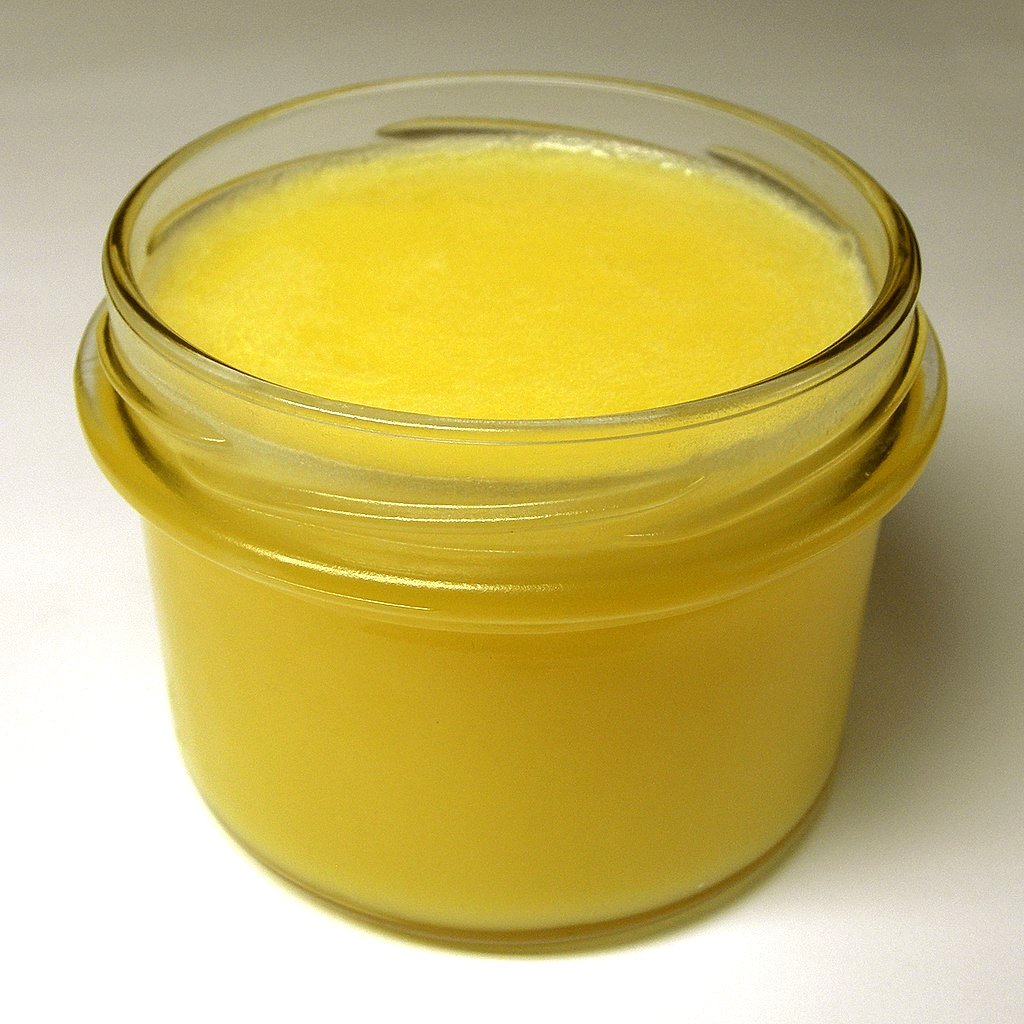
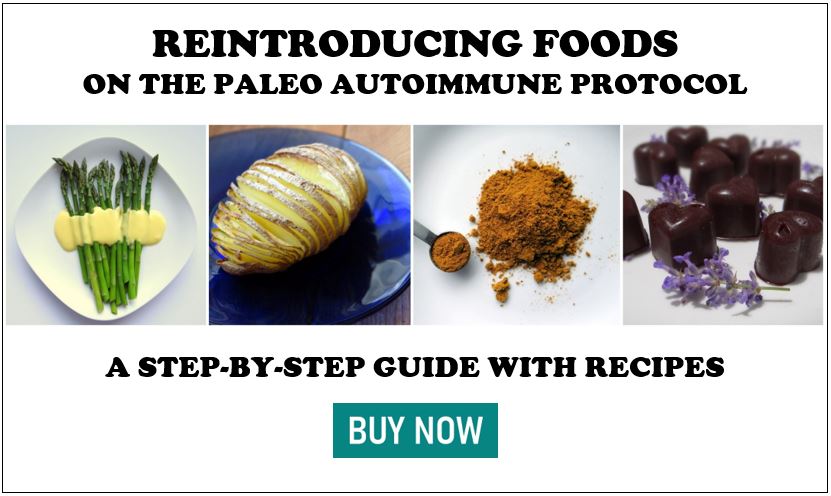
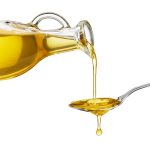
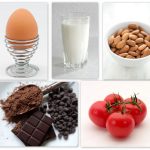
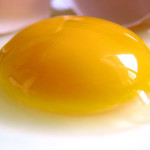
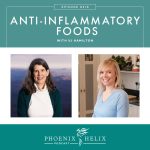



Hi! This article is great!
I’ve followed the elimination diet for a year now, but every time I try to reintroduce anything, it’s a fail so I go back to the elimination diet again and again. Why is that? Should I stay in the elimination diet forever? Is it ok or will I have long-term issues? Thanks for all your knowledge!
Hi Irene. You don’t want to stay in the elimination phase forever. There’s a great podcast I recorded recently that should help – Episode 147: Loss of Oral Tolerance – https://www.phoenixhelix.com/2020/05/01/episode-147-loss-of-oral-tolerance-with-dr-datis-kharrazian/
Thanks for your super fast response!! This is so enlightening!!! Thank you very much. I felt like a boat adrift. There isn’t that much info about autoimmune diseases in Spain where I’m from. So I’m really grateful.
I feel your pain. I had some ghee last night and I’ve had a dull headache all day today.
I’ve been doing Carnivore for a month. I’ve felt far better than I have in a long time. I did Keto 8 months out of 2018. I controlled my weight well, but my joints killed me and the brain fog was horrible. At any rate, last night, I cooked a pound of Kobe beef that was pretty fatty. Some things stick to my pan, so I added a tablespoon of ghee. I didn’t drain any grease afterwards. I felt sick on to stomach all night and had to get up in the middle of the night to use the bathroom. Today, I’m back in the same low energy fog I was in before I started this diet. It has to have been the ghee. I introduced nothing new.
Hi Robby. Isn’t it amazing how clearly our bodies can communicate? I’m so sorry you experienced such negative symptoms and hope your flare passes quickly. One note: I know the carnivore diet is appealing to people who struggle to digest vegetables. But long-term, it leads to nutrient deficiencies and other health problems. I do recommend that you set the goal of getting help to heal your digestion, so you can expand your diet in a way that’s both comfortable and healthy. If you’re looking for some 1:1 guidance, Laura Schoenfeld is a registered dietitian who specializes in helping people with extreme digestive challenges. I highly recommend her. Wishing you wellness, whatever you choose to do.
I’m concerned about your comment about the carnivore diet leading to nutrient deficiencies and other health problems in the long term. Carnivore is the only way of eating that makes me feel well, and I was on intro AIP for 7 years. So far as I’ve seen, there are many healthy long term carnivores. Could you expand on what your evidence is for this statement please? Thank you.
Hi Roger. For more details, you can listen to this podcast on nutrient deficiencies. We covered a wide variety of healing diets and the benefits and concerns for each one: https://www.phoenixhelix.com/episode-208-nutrient-deficiencies-healing-diets-with-dr-sarah-ballantyne/
I think this is one of the reasons AIP, not Paleo, has worked so well for us.
My gut told me to stay away from Ghee, even though it was lactose free (my 2 older sons and I are lactose intolerant). Well it turns out my toddler has a cows milk protein allergy.
Yes, I think the advertising on ghee is definitely inaccurate, as many of these comments show. I think it’s a wonderful nutrient-dense food for those who tolerate it well, but it’s simply not true that it’s “allergen-free” for everyone. Thanks for sharing your family’s experience, Jacinta.
Hi! So even if we don’t have any discernable reactions to ghee, do you still think it’s worth taking out for 30 days? And which replacement tastes the best? I admit i’ll miss the taste!!
Hi Leah. When it comes to food reactions, the only way to tell is to remove for a minimum of 30 days and reintroduce. For cooking fats, I love duck fat. For topping fats, I love flavor-infused olive oil (make sure they’re AIP, real-food flavors, though).
I was interested to come across this post. I have used a zero carb diet to ameliorate RA symptoms and recently switched from Tallow to Ghee. I was surprised to see a return of joint pain and a sharp increase in fasting blood sugar which seem attributable to the Ghee.
Thanks for sharing your experience. It comes as a surprise to many, but it’s clear that those of us with autoimmune disease can react to the trace proteins that don’t seem to bother other people.
Thank you for the very informative post! Thanks to it, I eliminated all dairy and tried to reintroduced goat ghee this week. After a couple of days, I noticed a very small spot of eczema on my hand and some mild itchiness at night. It’s fairly nebulous and not very clear to me though… is it really due to the goat ghee? Should I persevere for a week or two and see it the reaction goes away and isn’t linked to the goat ghee?
My main goal with AIP is to improve severe chronic constipation and colonic nerve health/transit – so even if it is a reaction, is it worth keeping ghee/testing other dairy product for the potential benefits of butyric acid, or try accustoming myself to it as long a skin symptoms are very mild? Since I’ve been told to follow a low-FODMAP diet (very small amounts of most vegetable carbs) and can’t afford to lose weight/suffer debilitating brain fog when I go too low carb, I’ve kept white rice and peeled/boiled potatoes which didn’t seem to trigger any reaction when tested – but now I’m wondering if it’s worth risking removing those for a month and try dairy again instead.
I’d appreciate your opinion on this!
Thank you.
Hi there. It’s so common to question food reactions, especially when they’re mild and we hope it isn’t true. That’s why I recommend phase 2 to the reintroduction process, where you eat the food every day for a week. It will be clear by the end of the week. Either your symptoms will increase or they will dissipate.
To answer your other questions. Nobody needs ghee in their diet. If you tolerate it, that’s great, but if not, it’s best avoided. You can definitely address your health issues in other ways. Here’s a good article with constipation tips. And if yours is partly nerve related, doing exercises which stimulate the vagus nerve can be very helpful.
Lastly, regarding the white rice and potatoes. If you have eliminated and reintroduced those successfully, there’s no reason to question that now. (Unless you never did an elimination period with those foods.) Also, we have to balance our body’s needs sometimes. You are right to avoid eliminating too many foods if you’re concerned about weight loss. It sounds like you are working with a functional medicine practitioner, which is wise with complex issues like yours. They can guide you in prioritizing these types of experiments.
Wishing you wellness in every way!
Thank you for the considered reply – I will try to go on with phase 2 and assess as best as I can then.
I wanted to believe I could ghee, but reading this article made me realize I cannot!
Hi Alisa. It’s possible you can! I just recommend people remove it for 30 days and then do a reintroduction as a test. Some people tolerate dairy better than others.
Thank you for this. I am a questioner as well and I stubbornly insist that I can tolerate ghee because I digest it well, however I needed to hear you clarify the difference between a digestive reaction and an autoimmune reaction! Even though I can digest it well I think it is causing inflamation and messing up my hormones. Im going to eliminate it now especially after learning that it has concentrated hormones! Thanks!
Hi Sarah. As a fellow questioner, I can relate! Eliminating it for 30 days and then reintroducing it will let you know how it affects you on all levels – positively or negatively.
Hi – Great post. My daughter seems to be tolerating Organic valley ghee, but her eczema flared up when she had cultured ghee (Ancient Organics). There’s something about the ‘culture’ that didn’t work for her. She is even able to tolerate OV Grassmilk (much to my amazement).
That’s so interesting! It shows how unique we all are. Thanks for sharing. I’ve very happy for your daughter that she’s tolerating some quality dairy.
Is there another good source for K2 other than supplements?
Hi Susan. Other good sources are sauerkraut, chicken liver, grass-fed beef and egg yolks (if you’ve reintroduced those successfully).
Thanks Eileen!
Thank you for your quick reply! I have not tried coconut yogurt yet but I think I will try to make it soon.
I tried reintroducing ghee today and within an hour or two had a painful, but quick, stomach ache. If I can’t tolerate ghee, can I still try reintroducing other dairy? I’m really missing yogurt!
Oh, I’m sorry Dee, and I can relate! I don’t recommend introducing other forms of dairy if you react negatively to ghee. It’s definitely the least allergenic. Have you tried making coconut yoghurt? It’s delicious!
Is it possible to stay on AIP indefinitely and maintain health? Someone asked me if I was going to ever go back and would I be hurting my health more by depriving it of food. But I thought about it and I think I eat better now then ever. A year ago I wouldn’t have even considered eating a sweet potato or a parsnip. Am I missing out on certain nutrients by never going back to dairy or whole grains? I think my biggest concern is consuming enough healthy fats. How much healthy fat do we need in a day? If I have an avocado once a day and eat broccoli drizzled in olive oil is that enough healthy fats? I just want to make sure that there isn’t something I’m missing but it made me stop and think when a coworker asked me if I was getting all my nutrients. Which is almost comical because I wasn’t worried about it when I wasn’t on AIP and between the gluten and refined sugar I’m sure I wasn’t getting what I needed then either. What a strange journey. 🙂
I can so relate to your experience, Christy. I’m definitely eating much more nutrient-dense now than I ever was before I started the AIP. Here’s a chart you can show your coworker. Terry Wahls created it, comparing her diet to the standard American Diet: http://www.phoenixhelix.com/wp-content/uploads/2014/02/Wahls-Nutrition-Vs-SAD-Diet.jpg . That said, strict AIP isn’t meant to last forever. You will want to do careful reintroductions at some point, following the advice in my Reintroduction Guide. Because if we can expand diet, it’s better nutritionally and psychologically. That doesn’t mean we’ll go back to eating gluten and sugar again, but most of us will be able to add back in some things. Although, I need to stay away from all dairy including ghee, I can eat white rice, seedbased spices and eggs. Those were successful reintroductions for me. To answer your last question – you want to eat healthy fats at every meal. Don’t fear them. Every cell in our body is made of 50% fat and our brain is made of 60% fat. Healthy fats are essential to everything from nutrient absorption to brain function to hormone balance.
Thank you for your diligent research on ghee Eileen! I just ordered a new jar of Tinstar Ghee and now will have to try reintroducing it to see how I react. It is very interesting to see how my body reacts as I continue my healing journey. I have noticed that when I eat something my body doesn’t like, I tend to feel a flare ‘coming on’ and that evening or the next morning, it’s in full force. Is that normal? Also, in addition to my eczema, I have a sensation either in my joints or bones that tells me it’s an inflammatory response, which is new to me since I started AIP. Could this be an arthritic related response do you think? I’m so used to monitoring my skin issues and I have no experience with this new sensation!
Hi Melissa. Everyone’s unique in the clues their bodies gives with a food reaction, and often the reaction differs slightly depending on the food. It’s not indicative of arthritis – any inflammation can cause temporary joint pain. It sounds to me like you’re learning your body’s language, and that communication is so empowering to have. Best wishes with your ghee reintro!
Thank you for your thorough research and blogpost which serves as a reminder and encouragement. I have been fairly strict AIP for 15 months, but I have been a little sloppy with reintroductions and have added back too many things that I like but haven’t clearly tested like coffee, chocolate, almonds and ghee. When you said wrist flare I had a bit of an aha moment. I have RA too, and I’ve been having a wrist flare for awhile now. Thank you for all you do to help keep us informed and contribute to healing!
I think that’s one of the reasons I love sharing our personal stories – so often there’s one detail that resonates with someone else. May your wrist flare go away! They are not fun.
Thanks for the explanation, Eileen. It’s bad news that you lost ghee, but great that you found one more piece of the puzzle!
Thanks for all your incredibly informative posts, Eileen. I learn so much from your site. One thing I’m not totally clear on: Why did you have such bad pain in response to the reintroduction of ghee when you’d been eating it without pain for all that time? What’s going on there, why does that happen? I’m still trying to understand the fine points of AI. Thanks!
Hi Carol. It’s the science of elimination/provocation. When you eat a food regularly to which you are intolerant, it causes chronic inflammation where it’s difficult to discern the source. When you remove it from your diet for 30 days, your immune system has a chance to calm down, but it leaves a few “guard cells” circulating, which can identify that food if you eat it again. When you eat it, they set off the alarms and the response is more acute. It’s not comfortable – but it’s very clear. You know it’s a problem food. Ghee was contributing to the mild inflammation that remains in my body. While I no longer flare, I’m not in complete remission. Ghee was one contributing factor that I wasn’t aware was a problem until I did this test.
Thank You for this post. I’ve had VERY itchy welts on the back of my head and neck for months! I keep a food/health diary and could not figure out if this was caused by food. After reading your post I thought what the heck and stopped eating The cultured ghee. Within a day the itching was less intense and in couple of days the welts started subsiding. If they stay away for a couple of weeks I’ll know this was the culprit.
Mystery solved! I’m so glad I could help.
I have tried a few brands that I can’t tolerate (RA). Now, I am curious about Pure Indian Foods, but I am also hesitant due to Eileen’s experience. I love the flavor of ghee and can’t tolerate coconut oil, so it would be so nice to rotate it in once a week or so for the vitamins and fat.
What I appreciate about Pure Indian Foods is that they are honest and don’t claim the 100% allergen-free that so many companies advertise. But I think you’re right Hilary, if you’ve tried other brands and reacted negatively, ghee as a whole category is probably not the right fat for you. Have you tried duck fat? That’s one of my favorites.
Thanks for explaining the true meaning of cultured ghee. As a celiac, I react to regular ghee. I tested the Purity Farms brand, and I believe they have the same detection limits for casein that you listed. I had the impression that cultured ghee would be completely casein free, and I was looking forward to trying it sometime in the future. Now I am much more hesitant, and I will not be making this reintro a priority, especially when the cultured variety costs so much more.
I think cultured ghee is misunderstood by a lot of people. I appreciate the owners of Tin Star Foods who told me exactly how it’s really made.
Thanx for this! I’ve been tempted to try it, but still so reactive, I’ve been hesitant… This new info helped me decide it’s a no !
You’re welcome, Sunny!
Oh, man. Not the resounding “yes!” I was hoping for regarding ghee, but very informative. I rarely comment, but I thought I should thank you for all your time and hard work. Well done, and all the best to you on your continued journey on the wellness path!
Thank you so much, Lindsay!
Forgot the link!
http://www.ncbi.nlm.nih.gov/pmc/articles/PMC3215354/
Even though the cholesterol is oxidized, it is still shown in studies to be therapeutic and to aid in lowering bad cholesterol. In ayurveda, where it is traditionally used long before paleo made it cool..It is very nourishing to tissues and also promotes digestive fire. With that said, digestive fire it burns thru fat that holds toxins and bacteria and can cause inflammation in areas that need healing after that dump and burning of bad tissue. After all, inflammation is not the bad guy. without it, our body would not know how to heal. One of the best things it does is pull heavy metals and toxins outhat of tissues it has been impeded in. One of the best heavy metal detox I have found.
Leslie, if you tolerate it, I agree it can be very beneficial. However, I don’t agree that added inflammation is beneficial to people with autoimmune disease. We have too much already. The “healing crisis” theory has gotten a lot of us into trouble, causing autoimmune flares instead of healing. I really believe in N=1. Everyone should test ghee for themselves. If your body likes it, it’s a fabulous fat to eat. If your body reacts negatively, trust your body and choose other healthy fats instead. There are many options out there.
I can’t eat ghee either
It’s a bigger group than I realized.
I save my bacon fat for flavor in AIP biscuits and veggies .is this bad or good fat. It’s uncured. I cook with it to give flavor . Love my bacon!
Cindy, I love cooking with bacon fat, too!
The thing about bacon fat, from what I’ve read recently, is that it doesn’t have the ideal essential fatty acid makeup. So it’s more inflammatory, let’s say, than tallow or coconut oil. I now try to limit it more than I used to.
This is such helpful information and so clearly explained. I’m still not certain whether I can tolerate Ghee, given my healing from Crohn’s, which is going quite well on the AIP. I use it every so often but haven’t been certain as to whether I do ok on it or not since it’s hard for me to regulate all variables when reintroducing. Will try again soon!
Spk, one way to double-check is to remove it for 30 days, and since you know you don’t have a dramatic reaction when you eat it occasionally, try eating a little bit every day for a week. If it’s inflammatory for you, you should be able to tell by the end of the week. If you still feel good, or within your normal range of fluctuations, ghee is probably safe for you. I have a friend with Crohns who does very well with it, but we are all unique!
Thanks, Eileen. It’s interesting that some people with Crohn’s do well with ghee since I assume people with digestive autoimmune diseases will not tolerate dairy a all. What I find difficult about reintroductions is the reality that even on strict AIP there are likely foods that I don’t tolerate that well. So feeling malaise in the days after a reintroduction still leaves me questioning what I’m reacting to (even though my bowels remain fine). Still a work in progress. Thanks again for your contributions to the community.
Spk – I have two thoughts. (1) Sometimes our malaise has nothing to do with food; we often jump to that conclusion, but it can be the ups and downs of autoimmune disease, or related to other autoimmune triggers like stress and lack of sleep. (2) Do you have my AIP Reintroduction Guide? In it, I really help people identify what is and isn’t a food reaction through a two-stage process.
Wow, just what I needed! Have been raised on butter and home made ghee, so did not give these up 8 yr’s. ago when I had to give up dairy and gluten. It might be that minuscule amount that I need to give up,to rid myself of inflammation. Have Hashis, celiac and now insulin resistance. Thank you, Angel!
You’re welcome, Alicia! It might make a big difference for you.
Petra and Shelley, I’m such a curious nature that I love research. It helps me on my own healing journey, too!
Thank you for the research, it gives me confidence in the information you share with us.
Thank you for doing this research & sharing it with us~!
Eileen, thank you for this very informative article. Just placed an order for more Tin Star, and it will be tough to resist but I think that I will try an N=1. Hoping I am not a cadillac…
Fingers crossed for you, Jennifer!
Really helpful post, thanks. I seem to do better without it (and all dairy) for healing psoriasis and psoriatic arthritis, but I will use butter sometimes still occasionally without too much fanfare. My skin is the clearest it’s been in years (pain still a work in progress), and I also stopped drinking coffee last year so that may be an influence (found an amazing green tea at our co-op). So appreciative of your work, Eileen, thanks so much!
I’m so glad to hear about those improvements, Felicia. May you just keep feeling better and better!
I was really curious as to why I was reacting to ghee on reintroduction, but now know why. Thank you Eileen, you are truly a blessing to us all.
Mystery solved! It’s interesting that so many of us react negatively.
I missed it terribly too during the elimination phase. When I reintroduced it I was surprised that I didn’t really enjoy the taste! At least not like I remembered loving it. For me it’s one of those occasional foods. I didn’t really notice any changes but I’ll have to “experiment” even closer now! Thanks, great article.
Isn’t it interesting how our taste buds change? That happened to me when I gave up butter. It didn’t have as much flavor as I remembered when I tried reintroducing.
Great Post! Thanks Eileen
My pleasure. 🙂
But many bacteria involved in fermentation produce proteolytic enzymes that do break down casein along with the lactase that breaks down lactose. I liken fermentation of cows milk to hydrolyzed baby formula in which casein is broken down so that casein sensitive infants down have to digest it. I just read an article on pubmed that said that fermented baby formula was more tolerated in a study than even hydrolyzed formula. So cultured (fermented) provides more than naunced flavor differences. I am far from an expert but this is what I got from hours of reading before finally purchasing some cultured ghee, so please tell me if I’m wrong. (Also I do realize that fermentation likely does not eliminate casein and lactose completely.)
The problem Ann, is that when someone with autoimmune disease reacts to a food, it’s not a digestive issue. Instead, the body is misidentifying that protein as a foreign invader and launches its defenses. Fermentation doesn’t prevent this from happening. To an autoimmune body, casein is casein, whether fermented or not. Not everyone with autoimmune disease reacts negatively to dairy, but for those that do, fermentation doesn’t seem to make a difference. For the general population who don’t have autoimmune disease, however, fermentation can make dairy more easily tolerated. So your research isn’t wrong; it just doesn’t apply to people with autoimmune disease.